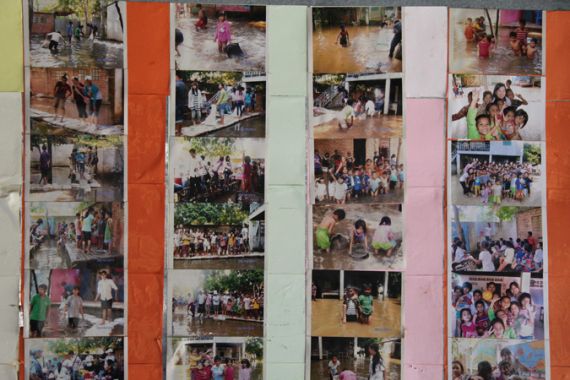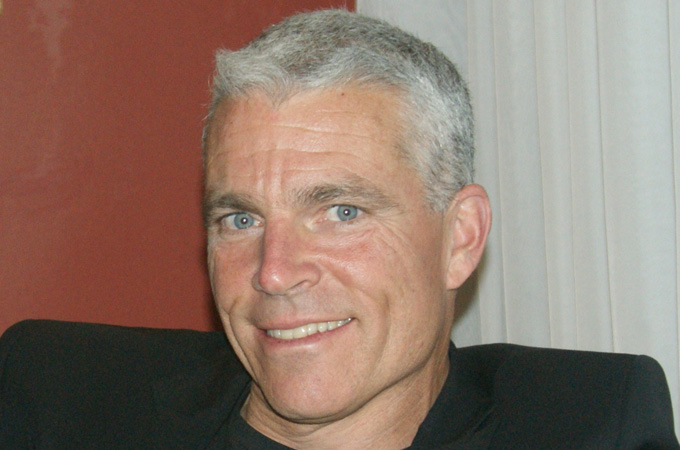
Voluntourism: ‘A new future for aid’
Could the convergence of volunteering with travel bridge the divide between the private, public and social sectors?
By David Clemmons
Over the past six decades voluntary service and travel and tourism have substantially evolved. Now, some 60 years later, they have converged to form a new type of travel – voluntourism.
If we simply focus on the technological breakthroughs that have made travel and tourism more accessible and more affordable for more people than ever before, then we can partially understand why a new travel and tourism niche is coming into existence. But, we also have to consider the evolution of the human race itself and our ability to think and feel beyond our own concentric circles of self and family, resulting in our willingness to voluntarily serve other members of our own species, and other species as well, thousands of miles from home.
Present day voluntourism, combining voluntary service and touristic engagement in a destination, traces its roots to the 1950s and early 1960s and to individuals from, primarily, the CANUU countries (Canada, Australia, New Zealand, the UK and the US) travelling internationally to volunteer. Volunteer Graduate Scheme (now known as Australian Volunteers International), Voluntary Service Overseas (VSO), the United States Peace Corps, and Canadian University Service Overseas (CUSO) emerged during this period and emphasised long-term service commitments in an effort to support development projects around the world.
‘Making a difference’
Fast forward to the turn of the Millennium, and we see a planet in rapid, unpredictable transition – September 11, 2001, the Southeast Asian tsunami in December 2004, followed less than eight months later by Hurricane Katrina, numerous other manmade and natural disasters across the planet, the global economic meltdown, the ‘Arab Spring’, and the growth and advancement of the internet and social media. Virtually no destination is seen as invulnerable to the influences of man and/or the forces of nature.
On an individual level, time is of the essence. Our lives are becoming measured by the degree to which they meet our growing demands for knowledge, memorable experiences, leaving a legacy, and ‘making a difference’.
Against this backdrop, the intersection of travel and voluntary service has emerged; one could even argue that this convergence is a veritable necessity in a world that is introducing public sector austerity measures and either freezing or decreasing official development assistance (ODA).
Voluntourism, as a form of private development assistance (PDA), is awakening us to a future of ‘aid’ that is quite different than our current thinking. With the deadline for the United Nations Millennium Development Goals (MDGs) less than three years hence, voluntourism represents one approach to educating travellers about these issues whilst simultaneously providing them with the opportunity to address them.
Of course, this will only be the case if we have a host of well-conceived, community-organised projects meeting the energy and commitment of fully informed travellers. However, with an estimated 10 million individuals travelling and volunteering in 2011, it is clear that voluntourism has become a multi-billion dollar expression of travellers’ desires to find meaning and to contribute to making the world a better place.
A complement to ‘aid’
In the second decade of the new millennium, as voluntourism enters the next phase in its maturation process, the potential socio-economic impact of this travel genre is poised to bridge the divide between the private sector, the public sector, the social sector, and the ‘developing’ and ‘developed’ worlds.
Leveraging the untapped resources and intentions of millions of travellers can significantly alter our capacity to confront the challenges that we currently face and those that lie ahead. Yet, this requires a concerted effort on the part of governments, corporations, NGOs, and local communities, as well as voluntourists. Only a conscious decision by all stakeholders to explore the role of voluntourism as a complement to ‘aid’ will afford us the opportunity to realise to what degree it may, in fact, achieve breakthroughs in our existing development assistance framework.
The future of voluntourism is indeed a bright one. New models and approaches are being developed worldwide – there are even niches within voluntourism: culinary, surf, animal, culture and heritage restoration, yoga, and leadership development, just to name a few.
Voluntourists are getting as much from interacting with their fellow voluntourists as they are from spending quality time in serving communities and exploring destinations. These intangible and unexpected outcomes arising from a journey that is, in part, meant to serve others, is just one of the reasons for the growing popularity of voluntourism.
The views expressed in this article are the author’s own and do not necessarily reflect Al Jazeera’s editorial policy.
| David Clemmons is the founder of VolunTourism.org. He is the publisher and editor of The VolunTourist Newsletter and The VolunTourist Weekly Review. Since 2000, he has come to be globally recognised as a leading authority on voluntourism. He has recently wrapped up a year-long engagement in Jordan, working with tour operators and NGOs and conducting research on the prospects of voluntourism in the Hashemite Kingdom. Later in 2012, he will be embarking on a collaborative project in Bolivia to create the first Voluntourism/Private Development Assistance (PDA) data collection platform. |
